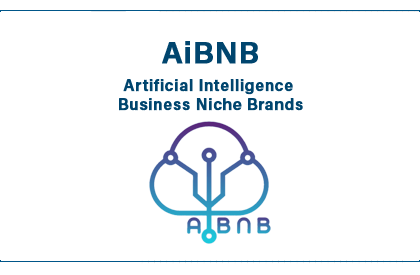Marketing executives are optimistic, with 80% believing AI will transform the industry. AI’s ability to analyze vast data sets makes machine learning strategies more appealing. These strategies enable businesses to make informed decisions and achieve tangible results. The scope of AI’s impact in digital marketing is immense, from predictive analytics to personalized ads.

AI is reshaping digital marketing, enabling businesses to engage with customers more effectively. Machine learning and predictive analytics allow for targeted campaigns that boost engagement and ROI. AI-driven tools, such as chatbots and personalized ads, are redefining marketing strategies.
Key Takeaways
- AI is transforming the digital marketing landscape with machine learning marketing strategies
- Predictive analytics in marketing allows businesses to make informed decisions
- Personalized ads are becoming increasingly popular with the help of ai in digital marketing
- Chatbots are improving customer engagement and streamlining marketing processes
- AI in digital marketing can help businesses improve their return on investment
- Machine learning and predictive analytics in marketing are key to driving real results
Understanding AI Marketing Fundamentals
As businesses invest in AI marketing, grasping its basics is crucial. This involves understanding the ROI and cost advantages of AI tools, as well as AI’s future in marketing. Through ai-driven ROI analysis, companies can make better marketing investment choices.
AI marketing tools offer significant cost benefits, from automating tasks to offering insights into customer behavior. For example, AI tools can personalize marketing campaigns, boosting customer engagement and loyalty. The future of AI in marketing looks promising, with machine learning and predictive analytics set to shape the industry.
What Defines AI Marketing
AI marketing excels at analyzing vast data sets to offer actionable insights. It employs machine learning and natural language processing to achieve this. These technologies help businesses understand their customers better, crafting more effective marketing campaigns.
Core Components of AI in Digital Marketing
The essence of AI in digital marketing lies in data analysis, automation, and personalization. These elements combine to streamline the marketing process. For instance, data analysis uncovers customer trends, while automation simplifies routine tasks.
The Evolution of Marketing Intelligence
The evolution of marketing intelligence has been marked by AI’s significant contribution. AI provides real-time customer behavior insights, enabling data-driven marketing decisions. As AI in marketing evolves, we can expect more innovative applications in the future.
The Power of Machine Learning in Digital Marketing Strategies
Machine learning is transforming digital marketing for businesses. It allows companies to automate and refine their marketing efforts. This leads to more effective and efficient campaigns. Digital marketing automation also enables personalization, enhancing customer engagement and driving conversions.
Machine learning has several key applications in digital marketing:
- Predictive modeling to forecast customer behavior
- Customer segmentation to tailor marketing efforts
- Content optimization to improve campaign performance
By adopting machine learning marketing strategies and digital marketing automation, businesses can gain a competitive edge. As technology advances, it’s crucial for companies to stay updated. They must explore machine learning’s potential in digital marketing.
Transforming Customer Experience with AI-Powered Chatbots
AI-powered chatbots are transforming how businesses interact with customers, offering personalized support and improving the overall experience. They provide 24/7 support, fostering trust and loyalty. This is a significant shift in customer engagement.
The advantages of using AI chatbots are vast, including enhanced efficiency and cost savings. They automate routine tasks, allowing human agents to handle complex issues. Moreover, chatbots enable personalized advertising, tailoring marketing to individual customers.
Benefits of AI Chatbot Implementation
- Increased efficiency and reduced costs
- 24/7 customer support
- Personalized advertising with ai
- Improved customer experience
Best Practices for Chatbot Design
To maximize the effectiveness of AI chatbots, adhering to best design practices is crucial. This involves creating interfaces that are easy to use, employing natural language processing, and continually monitoring and refining chatbot performance.
| Chatbot Design Element | Best Practice |
|---|---|
| User Interface | Simple and intuitive design |
| Natural Language Processing | Use of machine learning algorithms |
| Performance Monitoring | Regular analysis and improvement |
Predictive Analytics: Forecasting Customer Behavior
Predictive analytics in marketing is a powerful tool that enables businesses to forecast customer behavior. By analyzing historical data and real-time trends, companies can anticipate customer needs, preferences, and actions. This allows for more targeted and effective marketing strategies.
Some examples of predictive analytics applications in marketing include:
- Customer segmentation: identifying high-value customer groups and tailoring marketing efforts to their specific needs
- Personalized recommendations: using data to suggest products or services that are likely to interest individual customers
- Churn prediction: identifying customers who are at risk of leaving and proactively offering incentives to retain them
To implement predictive analytics tools, businesses can start by collecting and integrating data from various sources. This includes customer interactions, sales, and social media. Then, they can apply machine learning algorithms to analyze the data and make predictions about future customer behavior.
By leveraging predictive analytics in marketing, companies can gain a competitive edge and drive business growth. As Forrester notes, predictive analytics can help businesses “move from reactive to proactive marketing” and improve customer engagement.
| Benefits of Predictive Analytics | Description |
|---|---|
| Improved customer insights | Gain a deeper understanding of customer needs and preferences |
| Enhanced marketing effectiveness | Targeted marketing efforts lead to higher conversion rates and revenue |
| Increased efficiency | Automated predictive analytics tools reduce manual effort and minimize errors |
Personalization at Scale: AI-Driven Marketing Campaigns
Personalized advertising with ai is transforming the marketing landscape. It enables businesses to craft targeted campaigns that yield tangible results. This is made possible through ai-driven roi analysis.
Customer segmentation through ai is a pivotal aspect of personalization. Machine learning algorithms dissect customer data, uncovering patterns. This allows for the creation of marketing messages that truly connect with the audience.
Creating Dynamic Content
Dynamic content creation is vital in ai-driven marketing campaigns. Ai analyzes customer interactions and preferences, crafting personalized content. This content addresses the customer’s specific needs and interests.
Real-Time Personalization Strategies
Real-time personalization is crucial for effective ai-driven marketing. Ai assesses customer behavior, adjusting marketing messages on the fly. This ensures customers receive content that is both relevant and engaging.
By embracing personalized advertising with ai and ai-driven roi analysis, businesses can elevate their marketing. This approach leads to greater success in today’s competitive market.
| Marketing Strategy | Benefits |
|---|---|
| Personalized Advertising with AI | Increased customer engagement, improved conversion rates |
| AI-Driven ROI Analysis | Data-driven decision making, optimized marketing spend |
Measuring ROI in AI Marketing Initiatives
To gauge the success of AI marketing efforts, an ai-driven roi analysis is crucial. This involves assessing the return on investment for AI-based marketing tactics. It’s a detailed and time-consuming task. Yet, grasping the cost benefits of ai marketing tools aids marketers in budgeting wisely.
When evaluating ROI in AI marketing, several elements are pivotal:
- Initial investment costs
- Ongoing maintenance and support costs
- Revenue generated by AI-powered marketing campaigns
- Customer acquisition and retention rates
By examining these aspects, marketers can better comprehend their AI marketing’s impact. This insight enables them to refine their strategies based on solid data.

The ultimate aim of ai-driven roi analysis is to fully exploit the cost benefits of ai marketing tools. This ensures a substantial return on investment. By employing AI marketing tools and regularly assessing ROI, marketers can outpace rivals and propel business expansion.
| AI Marketing Initiative | Initial Investment | Revenue Generated | ROI |
|---|---|---|---|
| AI-Powered Chatbots | $10,000 | $50,000 | 400% |
| AI-Driven Email Marketing | $5,000 | $20,000 | 300% |
Cost-Benefit Analysis of AI Marketing Tools
When evaluating AI marketing tools, a detailed cost-benefit analysis is crucial. It’s about comparing the initial costs to the long-term financial gains. The advantages of AI marketing tools are substantial, including enhanced efficiency, better customer experience, and improved ROI.
The landscape of AI in marketing is constantly changing. Businesses must keep up to stay competitive. By investing in AI tools, companies can automate tasks, personalize interactions, and understand consumer behavior better. Resource allocation strategies are key to maximizing AI marketing tool benefits, ensuring resources are used to grow the business.
Key points to consider in the cost-benefit analysis of AI marketing tools include:
- Initial investment costs, such as software development and implementation expenses
- Long-term financial benefits, including increased revenue and reduced operational costs
- Resource allocation strategies, such as training personnel and allocating budget for AI tool maintenance
By examining these factors, businesses can make informed choices about AI marketing tools. This unlocks AI’s full potential in marketing.
The cost-benefit analysis of AI marketing tools varies by business needs and goals. Understanding the benefits and challenges of AI marketing tools helps companies navigate this complex field. This enables them to make strategic decisions that drive growth and success.
Real-World Success Stories: AI Marketing Case Studies
Exploring real-world success stories in ai marketing case studies offers invaluable insights for businesses. These stories highlight the challenges faced, the ai solutions implemented, and the outcomes achieved. This knowledge helps companies understand how to effectively integrate ai into their marketing strategies.
Notable examples include companies that used ai-powered chatbots to enhance customer engagement. Others leveraged predictive analytics to forecast customer behavior. These examples showcase ai’s potential to drive business growth and enhance marketing efficiency.

Studying these ai marketing case studies helps businesses identify best practices. They learn to start small and scale up as needed. They also avoid common pitfalls, such as insufficient data or poor integration with existing systems.
ai marketing case studies have shown that companies that adopt ai in their marketing efforts can achieve significant improvements in customer engagement, conversion rates, and revenue growth.
Overall, ai marketing case studies provide a wealth of information for businesses. By learning from these success stories, companies can develop effective ai marketing strategies. These strategies drive business growth and improve marketing efficiency.
Implementation Challenges and Solutions
As businesses start their digital marketing automation journey, they face various challenges. These can block the successful use of AI in marketing strategies. The future of AI in marketing relies on solving these issues. A major concern is the lack of skilled people to integrate AI solutions into current systems.
Common technical hurdles include data quality issues, algorithmic complexity, and system compatibility problems. To tackle these, businesses need to invest in training their teams. This ensures staff can handle AI-driven marketing tools effectively. Training can be through workshops, online courses, or working with AI experts.
Another key challenge is integrating AI solutions with existing systems. But, with the right strategy, businesses can smoothly blend AI marketing with their current setup. This boosts their digital marketing automation capabilities. Here are essential steps for a successful integration:
- Assessing current system capabilities
- Identifying potential integration points
- Developing a comprehensive implementation plan
By understanding these challenges and finding effective solutions, businesses can fully leverage digital marketing automation. This keeps them competitive in the future of AI in marketing.
| Challenge | Solution |
|---|---|
| Data Quality Issues | Implement data cleansing and validation protocols |
| Algorithmic Complexity | Collaborate with AI experts to simplify algorithmic processes |
| System Compatibility Problems | Develop a comprehensive integration plan to ensure system compatibility |
The Future Landscape of AI in Digital Marketing
The future of ai in marketing is set to be influenced by new technologies and trends. As ai in digital marketing progresses, we anticipate more tailored and interactive customer experiences.
Several trends will define the future of AI in digital marketing. These include:
- Increased use of machine learning and deep learning algorithms
- Greater emphasis on data-driven decision making
- More sophisticated chatbots and virtual assistants
Experts predict a future where AI in marketing is more automated and personalized. As ai in digital marketing evolves, we’ll see more precise and impactful marketing efforts.
In summary, the future of ai in marketing is promising and packed with potential. As ai in digital marketing advances, we can look forward to innovative strategies for connecting with customers.
| Trend | Description |
|---|---|
| Machine Learning | Increased use of machine learning algorithms to analyze customer data and behavior |
| Personalization | Greater emphasis on personalized marketing campaigns and customer experiences |
| Chatbots | More sophisticated chatbots and virtual assistants to enhance customer engagement |
Conclusion: Embracing AI for Marketing Success
The integration of AI marketing and digital marketing automation is transforming business strategies. AI unlocks personalization, predictive analytics, and enhanced customer engagement. This is a game-changer for marketers.
Success comes from embracing AI’s transformative potential. Make it a central part of your digital marketing strategy. AI tools streamline workflows, optimize campaigns, and deliver personalized experiences that engage your audience.
AI marketing offers vast opportunities, from improving customer service with chatbots to predicting consumer behavior. It also enables personalized content at scale. Businesses that adopt AI will thrive in the competitive future.
Stay updated on AI technology advancements as you navigate digital marketing. Leverage these innovations to drive your business forward. With the right strategies and adaptability, you can achieve unparalleled success with AI marketing.
FAQ
What is the role of AI in digital marketing?
AI is transforming digital marketing by introducing machine learning, predictive analytics, and personalized ads. It’s changing marketing strategies, boosting customer engagement, and improving ROI. It also streamlines marketing processes.
How can machine learning enhance digital marketing strategies?
Machine learning automates and optimizes marketing through predictive modeling and customer segmentation. This makes digital marketing more effective and efficient.
What are the benefits of implementing AI-powered chatbots?
AI chatbots improve customer experience by offering better support and engagement. It’s important to design chatbots well and measure their success for effective use.
How can predictive analytics forecast customer behavior?
Predictive analytics uses data to predict customer needs and actions. This allows businesses to craft targeted marketing strategies.
What is the role of personalization in AI-driven marketing campaigns?
AI makes personalization scalable, enabling businesses to create targeted campaigns. This is done through customer segmentation, dynamic content, and real-time personalization.
How can businesses measure the ROI of AI marketing initiatives?
Measuring AI marketing ROI is key. Analyzing AI-driven ROI and understanding AI marketing costs helps evaluate strategy success.
What are the common implementation challenges for AI marketing?
Implementing AI marketing faces technical hurdles, training needs, and integration challenges. Overcoming these is crucial for success.
What is the future landscape of AI in digital marketing?
The future of AI in digital marketing will see new technologies and advancements. Staying updated on trends is vital for staying competitive.
| Thank You for visiting AIBNB |
AI in digital marketing, machine learning marketing strategies, predictive analytics in marketing, chatbots for customer engagement, personalized advertising with AI, AI-driven ROI analysis, cost benefits of AI marketing tools, future of AI in marketing, AI marketing case studies, digital marketing automation




